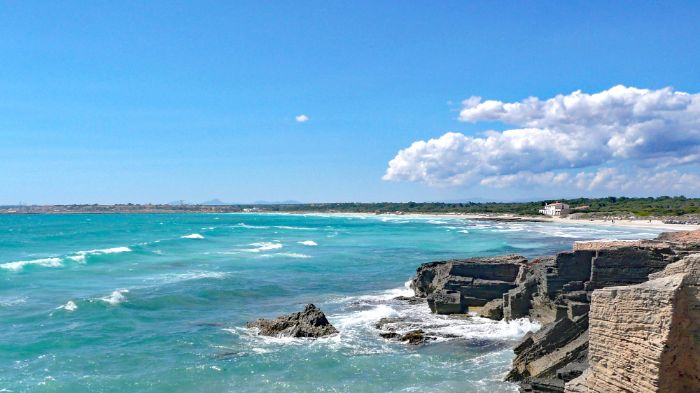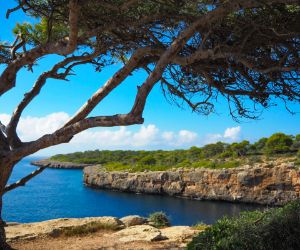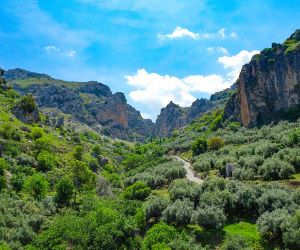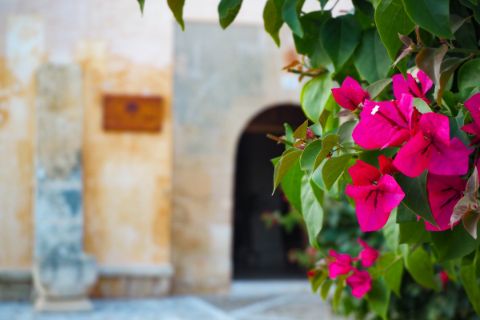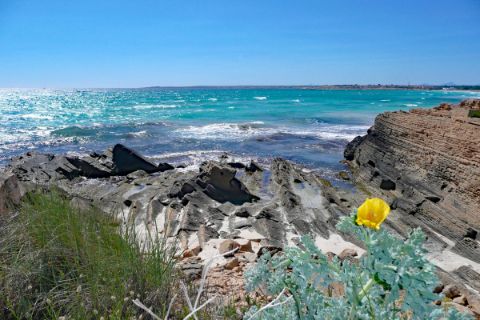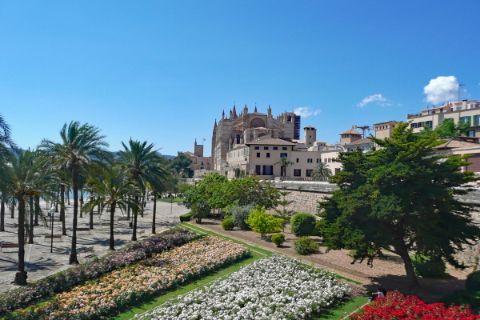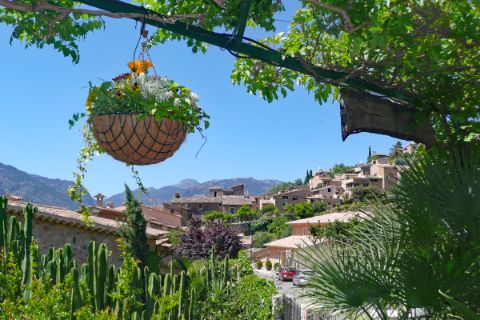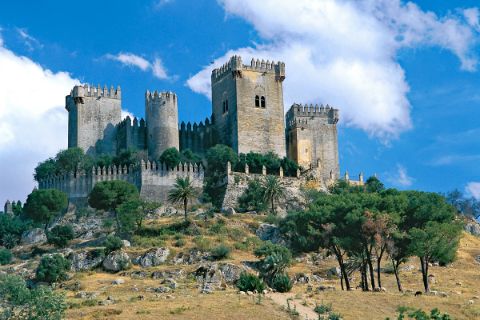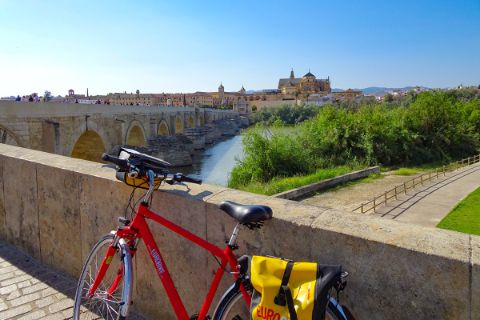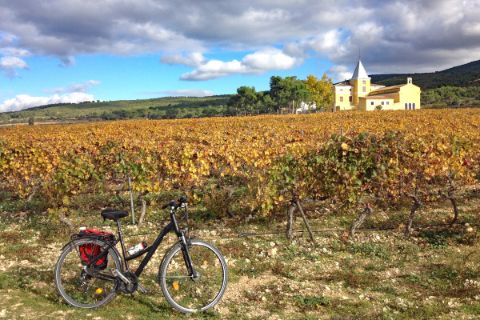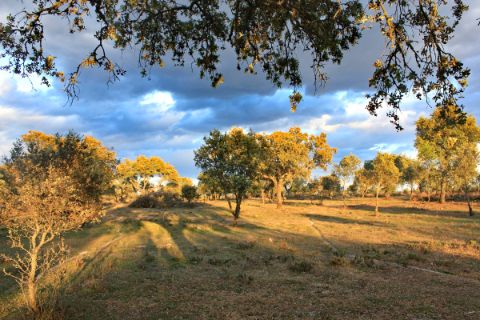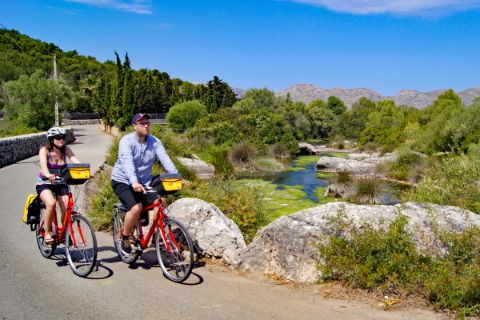Visit the land of proud flamenco dancers and the world’s biggest tomato fight
Close your eyes for a moment, picture Spain. And? Which picture springs to mind? Those of pretty dancers in fiery red dresses, dancing flamenco with dedication and pride? Or the daredevil Torreros, who dance only the dance of death with a red cloth and a bull? Or fishermen who drink their caffé con leche early in the morning in a small bar after hauling their catch? Or do you picture yourself sitting in front of a large pan of paella? Together these thoughts provide a beautiful picture of how the great Salvador Dalí himself would have painted it. And this picture is Spain. What type of travel would be better placed to take it all in than by cycling? Whether on the beautiful sunny island of Mallorca, southern Andalusia or other well-known regions of Spain – a cycle tour in Spain will enchant you!
Majorca
How about, for example, a cycling holiday in Majorca? Experience the charm of the Balearic Island, away from the busy nightlife and get a picture of the idyllic side of Majorca. In the inland hills the windmills turn, the cicadas chirp from the grass and the ancient olive trees provide shade during breaks. Whether on the bike tour Majorca Loop Tour, Majorca based in two hotels, Majorca with charm or Majorca bike & finca – you will be amazed at how versatile, charming and wonderful this island is.
- Find more information about cycling in Majorca here.
Andalusia
The cycle tour in Andalusia along the 'Silver Path', which takes you across Spain from the sun-drenched Andalusia across the expanse of the Iberian plateau in the Extremadura and in Castile all the way up to northern Spain is both exciting and fascinating. The route takes you along the tracks of the historic Roman road 'Via de la Plata'. It starts in Sevilla (Andalusia) and goes via Mérida and Trujillo (Estremadura) to Castile where Salamanca and Zamora are until you get to León.
-
Find more information about cycling in Andalusia here.
Alicante and the magical Costa Blanca
The ‘Eternal City’ of Rome is young compared to the history of Alicante. 5000 years ago, people were settling here in the south of the country. The journey through Alicante begins in the town of Sax, whose origins can be traced back to the Bronze Age. Above the small town with about 10,000 inhabitants perched on top of a rock, a late medieval castle dominates the skyline. On day trips between 40 and 60 kilometres, our cycle tour takes us through the idyllic landscapes of Cataonia past orchards, the lake of Baniarrés and rugged valleys across nature reserves and along railway tracks to Valencia. Here, moderate temperatures between 16° and 30°C prevail throughout the year, making cycling in Spain a pleasure at all times.
The Spanish climate
Spain, the country that occupies most of the Iberian Peninsula, has several different climatic zones. In the mountains of Spain the climate is typical of such regions – cold temperatures with snow in winter and rather cool summers. Northern Central Spain has a continental climate with large differences between summer and winter. The south of Spain is very Mediterranean, with mild winters and hot summers. The perfect time to travel for us cyclists are during the pleasant temperatures of spring and autumn.
Spanish delicacies
Fish fans are in luck! Because in Spain your heart will do a little jump as you look at the menus. Fresh fish and seafood are on the top of Spaniard’s food list. But meat, the freshest vegetables and precious olive oil and dried ham are also among the delicacies of the nation. But you should know about a few peculiarities before you holiday in Spain: Spaniards seldom dine before 13.30 and never before 21.00, garlic (ajo) is popular and you probably will not find side dishes on the menu. But fresh white bread is almost always served alongside the delicious dishes. We wish you Buen provecho!
A typical Spanish menu
Primer Plato
Tortilla Española – potato omelette
Espinacas a la catalana – Spinach with garlic, raisins and pine nuts in olive oil
Fideuà – Seafood pasta cooked in a fish broth
Paella – rice dish with seafood, chicken or rabbit
Gazpacho – cold vegetable soup
Gambas al ajillo – shrimp marinated in garlic
****
Segundo Plato
Carne Guisada – stew with meat and vegetables
Bacalao al pil pil – cod with garlic, slowly cooked in olive oil
Riñones al Jerez – kidneys in sherry sauce
Trucha a la Navarra – trout stuffed with Serrano ham
Albóndigas – meatballs in tomato sauce
Merluza a la romana – breaded hake
****
Postre
Arroz con leche – rice pudding
Crema catalana – caramel cream, similar to the French crème brulée
Flan – a kind of pudding
Did you know…
- …that in Spain, neither Santa Claus or the ‘Christkind’ brings the presents, but the three wise men? Somehow makes sense, right?
- …that Spain is the only European country where bananas are grown?
- …that Spanish is the fastest spoken language in the world?
- …that the exact centre of Spain is Madrid? How fitting!
- …that there is actually a festival in Spain where some 40,000 people throw overripe tomatoes?
- …that the lolly was invented in Spain? The Spanish lollipop Chupa Chups is known all over the world. The name derives from the Spanish word chupar and means sucking. Incidentally, the company’s flowery logo was designed by none other than Salvador Dalí.
- …that in a small Spanish village New Year’s Eve is celebrated at twelve noon? The average age of the inhabitants is over 75 years, so the turn of the year was brought forward so all citizens could celebrate. Clever, right?
The most curious festivals in Spain
Everyone knows that Spaniards like to party. But you might not be aware of just how much. There are about 25,000 ‘Fiestas’ in the land of Sangria. Get a taste of the craziest and most whimsical reasons to party:
- San Fermín Festival – fighting bulls are driven through the narrow streets of Pamplona and hundreds of daredevils run with them.
- La Tomatina – around 40,000 people throw overripe tomatoes at this festival, turning the city into a huge bottle of ketchup.
- El Colacho – a devil disguised man jumps over newborn babies who are laid on matrasses on the ground. This custom is intended to protect babies from harm.
- Santa Marta de Ribarteme – survivors of serious illnesses or accidents can be carried in open coffins through the streets of the city so they can show that they have jumped from death again.
Perfectly organised cycling holidays in Spain with Eurobike
Eurobike, this is not just a cycle tour operator. Eurobike stands for reliability, years of experience, professionalism and the best customer service. We make sure that nothing goes wrong on your holiday. From the first contact to the trip home, you are well advised by us. We book comfortable hotels for you, provide you with the perfect travel documents and maps from Bikeline, transport your luggage on time to your next accommodation and are always on site or available via our service hotline.
Eurobike - the first address for cycle tours in Spain!

